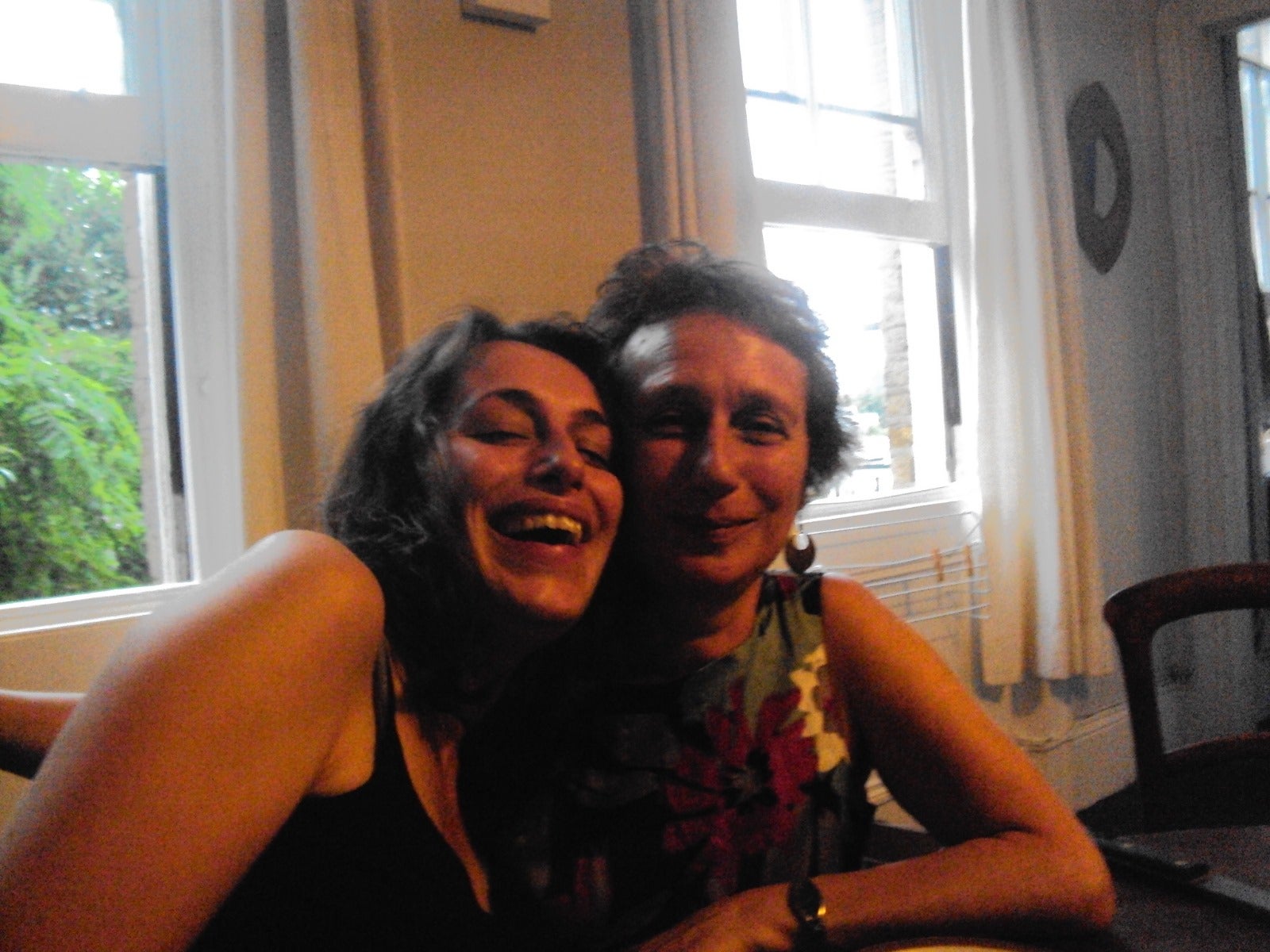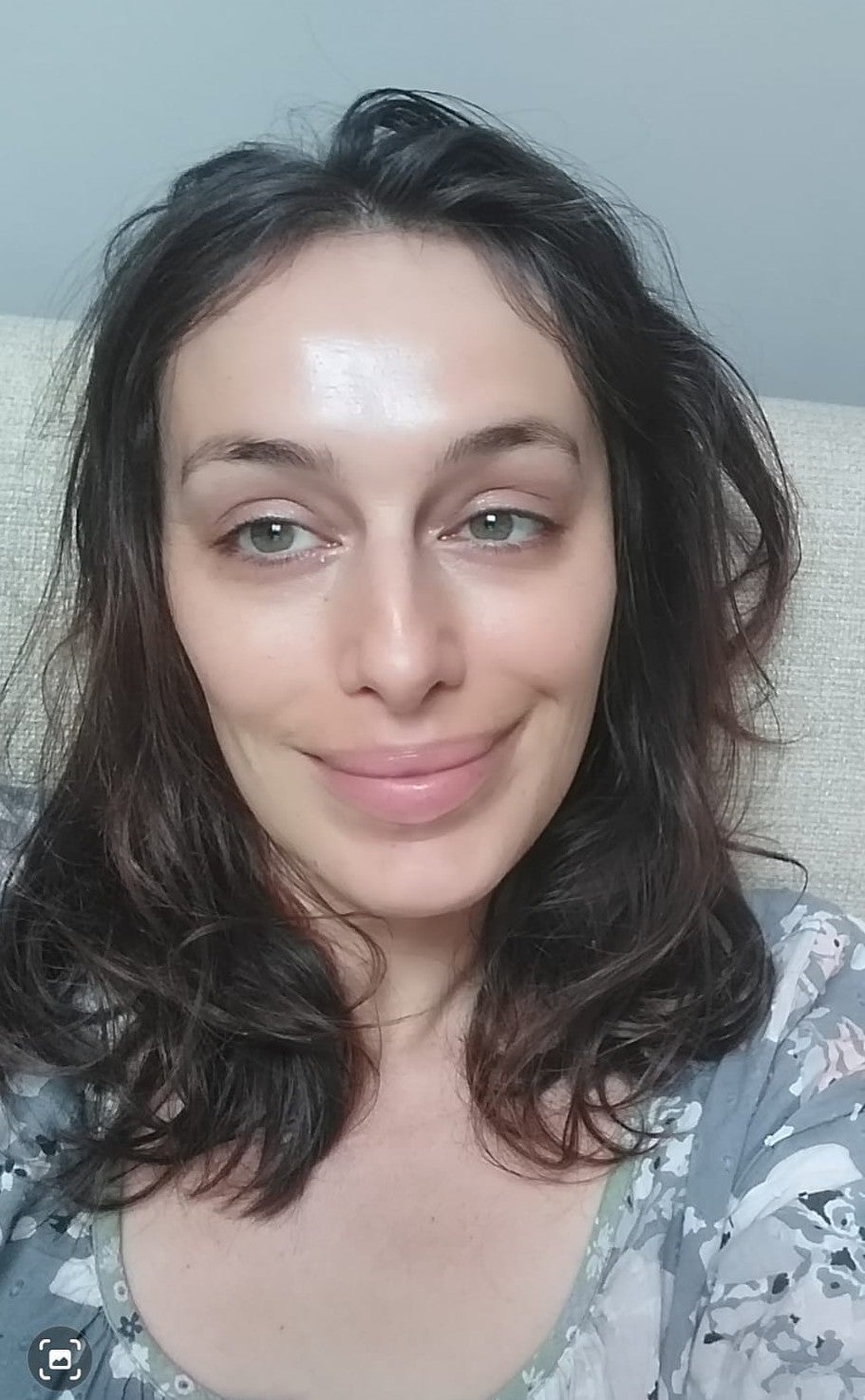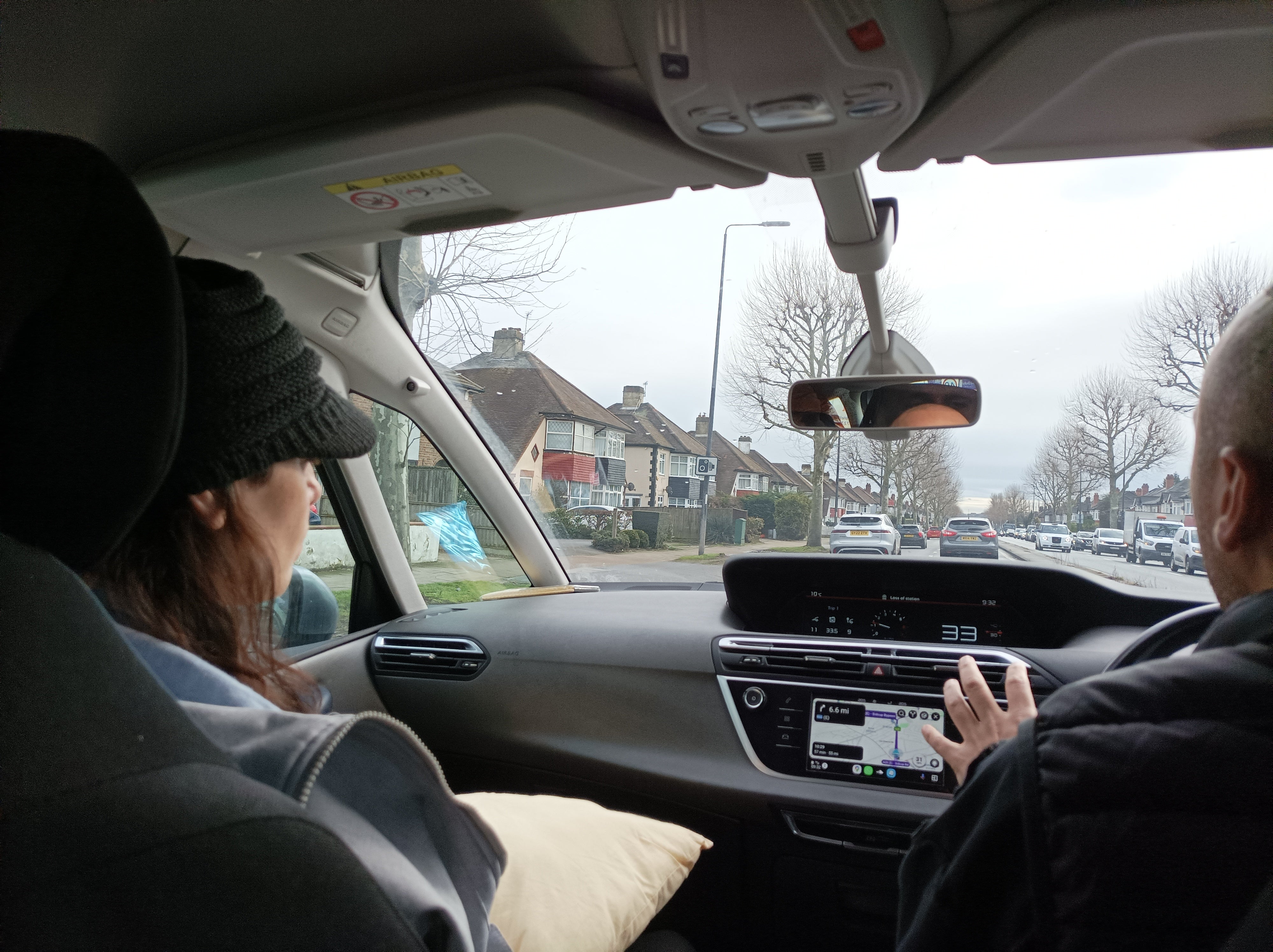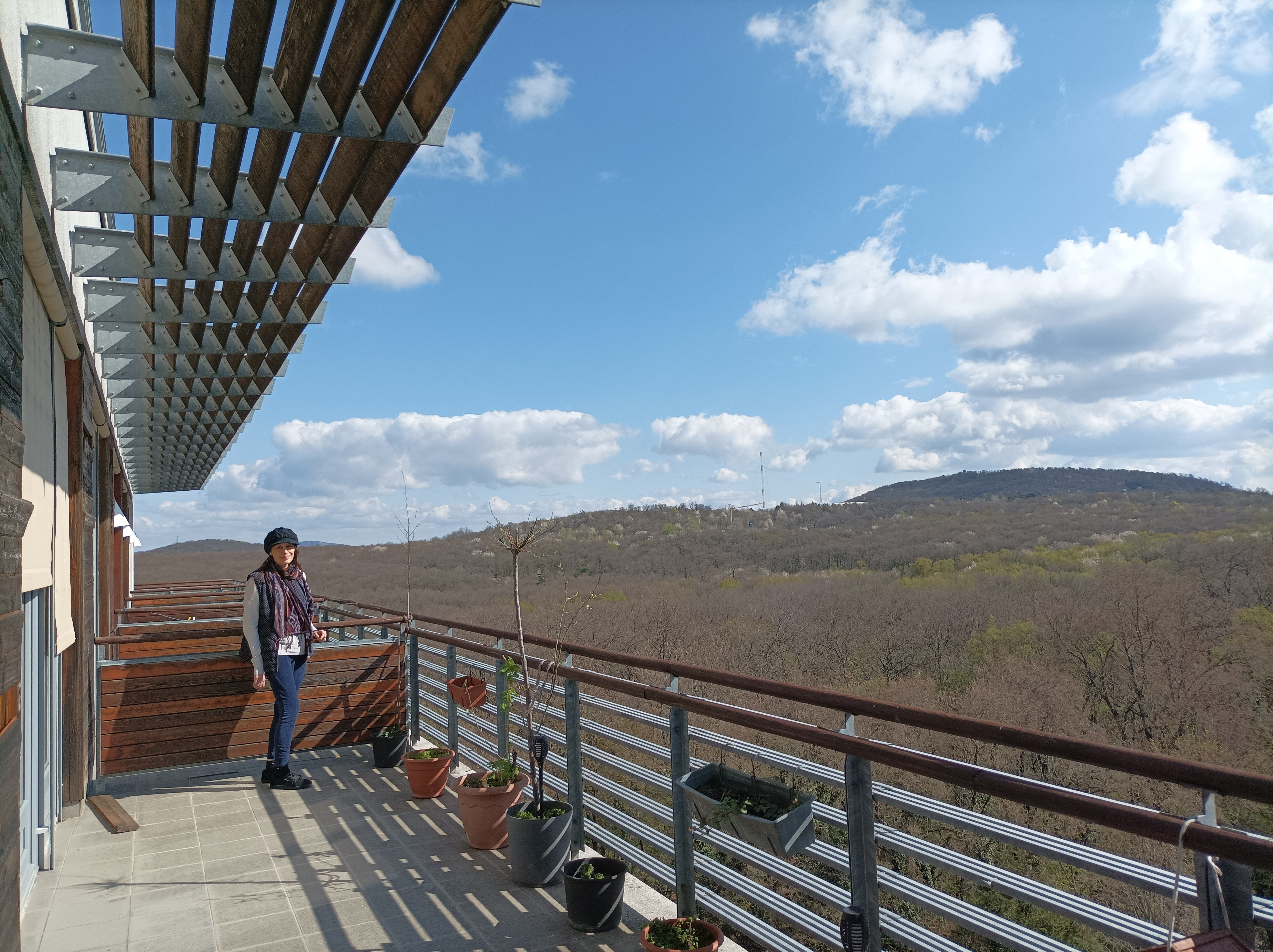This website uses cookies so that we can provide you with the best user experience possible. Cookie information is stored in your browser and performs functions such as recognising you when you return to our website and helping our team to understand which sections of the website you find most interesting and useful.
A London teacher left unable to walk or talk after suffering a sudden brain haemorrhage has been driven over 1,000 miles to Hungary for specialist treatment following what her family describe as a "nightmare" experience with the NHS.
Anna Chithrakala, a 45-year-old English teacher and palliative carer, collapsed while on a walk in December, losing her ability to speak. Rushed to hospital, she underwent six hours of brain surgery for a major bleed and was diagnosed with a stroke. The stroke left her unable to walk, talk, or move the right side of her body.
During her recovery, Anna was transferred to University Hospital Lewisham. Her time there, however, was marred by what she alleges were "bullying nurses" and "noisy wards" in an experience she describes as a "nightmare,"
Determined to see her daughter regain her mobility and speech, Anna’s mother, 69-year-old Piroska Markus, discovered a rehabilitation programme at a hospital in her native Hungary. The family then decided to drive Anna the 1,100-mile journey from London in February, a trip that took two-and-a-half days.

Anna is now undergoing intensive rehabilitation at a cost of £500 per week, much less than the price quoted for private treatment in the UK. The therapy is showing positive results, with Anna regaining some ability to walk and talk after initially being unable even to blink.
However, the family's funds are dwindling and are expected to run out by 2 June. They have launched a GoFundMe page to raise money to allow Anna to continue her recovery in Hungary.
“I love it here,” Anna said, speaking from the hospital in Hungary with the help of her mum and 40-year-old brother Senthil Seveelavanan.
“This hospital makes a difference to my recovery as everyone is optimistic and everything is about being active.
“In Lewisham, everything was pessimistic, nurses were bullying patients and the wards were very noisy with people mostly remaining in bed.
“I tried to climb out of the bed and escape the hospital.”
Before her stroke, Anna was freelancing as an English teacher and a live-in palliative carer while studying to be a complementary medicine practitioner.

On December 21 2024, she was on a walk with her care patient and a friend when she suddenly lost the ability to speak, before collapsing, with no prior symptoms.
Her family said the ambulance took 35 minutes to arrive and was then delayed in setting off to the hospital due to difficulties administering her.
It then took five hours to get her into surgery for a brain bleed at Bristol Southmead Hospital, after surgeons were unable to treat her at a smaller hospital.
“From her collapse, it took five-and-a-half hours to get her into surgery at the right hospital,” Senthil said.
“This was partly due to ambulance staff having to register her before rushing her to the hospital.
“It was just complete inefficiency.”
Anna had two surgeries on her brain and was placed in an induced coma.
“She was between life and death for several weeks,” her mother Piroska said.

Six weeks later, Anna was moved to University Hospital Lewisham’s stroke ward to be closer to her family – including her younger brother, Ruben Seveelaventhen, 38, from London.
But she claimed nurses were “bullying” patients on the “very noisy” wards at the hospital, describing how one practitioner seemed to “mock” her condition.
Anna added: “On my first night in Lewisham, a nurse said to me ‘what is a stroke?’ in a mocking way and I wasn’t able to speak to stand up for myself.”
In mid-February, doctors recommended for Anna to be discharged from hospital.
However as an NHS outpatient, she would only be entitled to two-and-a-half hours of rehabilitation per week for up to one month after leaving the ward.
Fearing Anna would not have the tools to recover, her family found alternative treatment at the National Medical Rehabilitation Centre Budakeszi, offering all-inclusive therapy and board – for which they were quoted around £5,000 from private UK providers.
The programme is free for Hungarian citizens but costs Anna £500 per week as an overseas patient.
On February 25, they drove two-and-a-half days to Hungary where Anna is now enrolled in the programme.

There, she has weekly access to physiotherapy, speech and language therapy, water therapy, music therapy, occupational therapy, including cooking skills, and robotics therapy to stimulate her right arm and leg.
She also has a weekly counselling session with a therapist at the hospital.
Piroska said: “I knew that rehabilitation is a strong part of the culture here and the philosophy of rehab is different.
“The machinery is all around so patients can use it whenever they like.
“Anna shares a room with only one other person and they have their own balcony overlooking a forest and a bathroom adapted to their needs.”
Anna’s right hand and foot remains paralysed but she is able to walk with significant effort.
She is also regaining her speech, speaking in broken sentences, and slowly recovering her cognitive abilities.
A Lewisham and Greenwich NHS Trust spokesperson said: “We are very sorry to hear about Ms Chithrakala’s experience with us and would encourage her and her family to contact us directly so that we can open a formal investigation into their concerns.
“We wish Ms Chithrakala well with her continued recovery and hope that she is able to return home soon.”
To find out more, visit Anna’s fundraiser here: gofundme.com/f/anna-neuro-rehabilitation-fund



 Africana55 Radio
Africana55 Radio 
